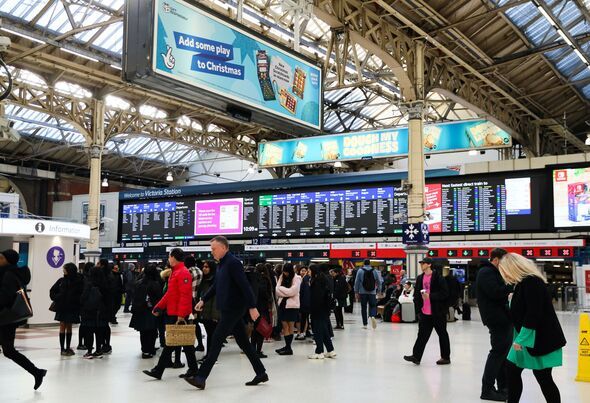

The most widely spoken language on the planet, English, has changed many times throughout the centuries. Sometimes, this has been driven by changes in population, technological advancement, or even by great writers like Chaucer or whose grand eloquence made certain words and phrases part of our everyday speech.
But now, Network Rail is contending to be among those forces with a new employee handbook aimed at helping its workers "sound human" when speaking to members of the general public. Among the group of words staff are being told not to use with passengers is, bizarrely, the word "passenger," it is reported today by .
Instead, conductors should simply address people as "you." Boyfriends, girlfriends, wives and husbands are also being linguistically trussed up and left on the tracks, with all workers told to just use partner or spouse instead.
The move is aimed at making a more inclusive for all Brits. Though, proving that changing a lexicon might be harder than planned, Network Rail's chief executive said the rules were about using the language that "passengers" use themselves. Rail boss Andrew Haines said: "To put passengers first, we have to speak their language. That goes for all of us. Whoever we're talking to, whatever the situation."

The guidelines, also ironically entitled 'Speak Passenger', aim to "eliminate discrimination, advance equality of opportunity, and foster good relations between different people". This is largely by using gender-neutral terms, replacing manpower with "people", mother and father with "parents, and pregnant woman with "pregnant person."
In this effort to "speak passenger" all Network Rail workers will also be asked to dumb down their language, using "get" instead of obtain and "buy" instead of purchase, with instructions to "say it in the shortest way you can". The guide, which the reports also includes an hour-long training video for employees, was compiled by consulting firm Schwa.
It tells employees that failing to follow the language guidance could "exclude" and alienate co-workers and customers. It says: "If we don't do it, the language we use can create and reinforce bias against individuals and groups of people. It can also create and reinforce negative stereotypes.
"The result can be a work environment that's humiliating, unpleasant and alienating. Not to mention the fact we'll be excluding a large portion of our audience."
Part of this move is to remove some of the frustration that many Brits feel when they are using the nation's rail network, which has become plagued with delays and cancellations. In order to better communicate, staff should "use language real people use."
The aim is to "sound human, not corporate," with Network Rail workers told not to sound like a PA system when delivering the all-too-regular bad news that services will not be running. To not frustrate passengers more, workers should not say: "All services are currently cancelled due to recent storm events. We would like to apologise for the inconvenience this may cause to your journey."
But rather, tell the crowd of angry rail users: "I'm really sorry everyone but we've had to cancel all the trains this evening. A tree's fallen across the tracks just outside the station and it's going to take a few hours to clear."
According to the brand consultancy firm's language guide for workers, when people trying to travel by train look up and see boards reading "Cancelled. Delayed. Cancelled. Delayed. Cancelled," speaking like a normal human being might just calm them down.
The guide states: "You're probably still annoyed. But it's harder to feel furious, isn't it? That's because the message uses the words we all use in our everyday lives, rather than a stock reply."